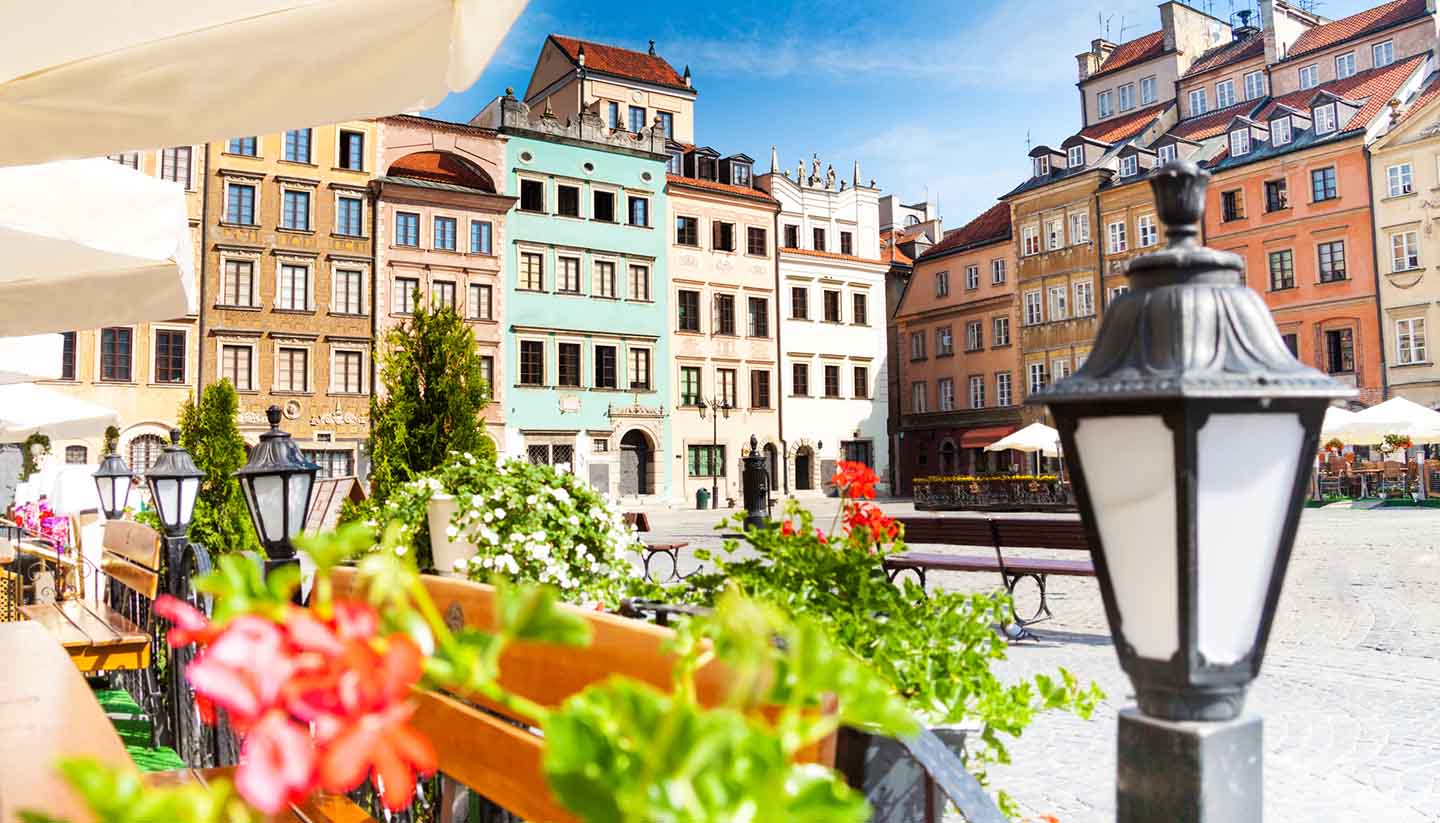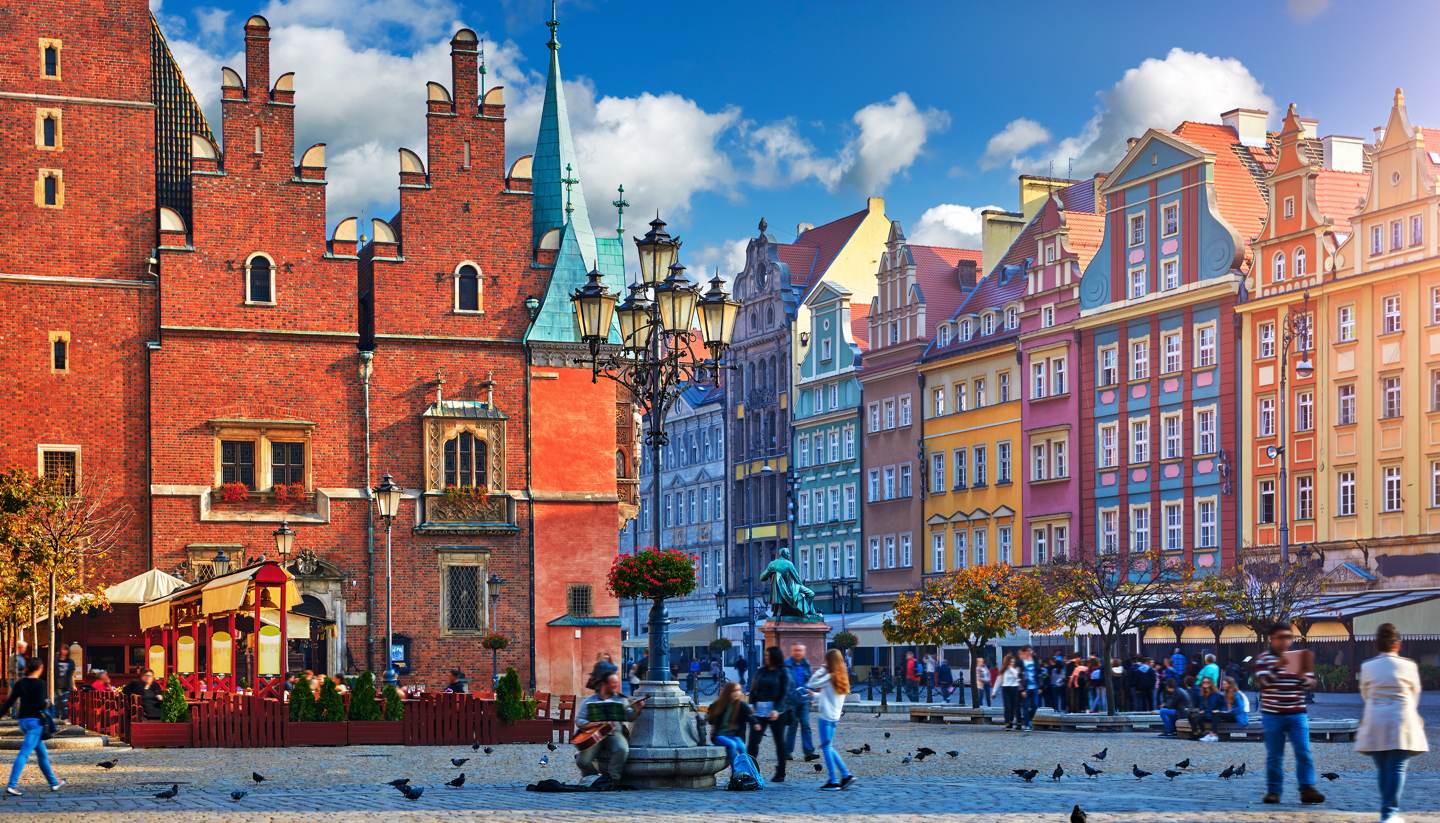Money and duty free for Poland
Currency and Money
Currency information
Złoty (PLN; symbol zł) = 100 groszy. Notes are in denominations of zł200, 100, 50, 20 and 10. The coins are in denominations of zł5, 2 and 1, and 50, 20, 10, 5, 2 and 1 groszy. Poland is required under the terms of its accession to the European Union in 2004 to adopt the Euro as its national currency sometime in the future but this is not expected to happen for at least three years.
Credit cards
American Express, Diners Club, MasterCard and Visa are accepted in larger establishments. You can obtain cash from Visa credit and debit cards at banks and from ATMs. MasterCard is also accepted by some ATMs.
ATM
You can obtain cash from Visa credit and debit cards at most ATMs. Most also accept MasterCard, Cirrus and Maestro cards.
Travellers cheques
These can be exchanged but they’re usually more expensive and troublesome than ATM withdrawals. Also, exchanging traveller’s cheques in Poland has been reported to be problematic; most bureaux de change (kantors) won’t change them and the banks that do usually charge a commission on top of the one you’ve already paid when buying the traveller’s cheques.
Banking hours
Mon-Fri 0900-1600, Sat 0900-1300 in main cities. In smaller towns, banking hours are more limited.
Currency restrictions
The import and export of local and foreign currency is unrestricted. Amounts over €10,000 or equivalent must be declared if travelling from or to countries outside the European Union.
Currency exchange
You can exchange foreign currency at all border crossing points, hotels and bureaux de change (kantors), some of which are open 24 hours. These are always good bets as they are fast, efficient and generally charge no commission (though it’s always safe to double-check their rate of exchange). Hotel rates and goods in large stores may also be listed in Euros, but payment is usually expected in złoty.
Poland duty free
Overview
Poland is within the European Union. If you are travelling from outside of the EU, you are entitled to buy fragrance, skincare, cosmetics, Champagne, wine, selected spirits, fashion accessories, gifts and souvenirs - all at tax-free equivalent prices.
Poland's duty-free allowance for travellers from EU countries:
If you are over 17 years old, you are free to buy and take goods with you when travelling between EU countries, provided that you have paid tax on these goods and they are for your own use (not for sale). However, if you bring in more than the following, customs officials are likely to question you:
• 800 cigarettes; 400 cigarillos; 200 cigars; 1kg of tobacco.
• 90L of still wine (of which may be not more than 60L of sparkling wine).
• 110L of beer.
• 20L fortified wine (such as port or sherry).
• 10L of ethyl alcohol.
Beware that each EU country has different rules for travellers under 17 years old. Please check before you travel.
Poland's duty-free allowance for travellers from non-EU countries:
If you are arriving from a non-EU country, the following goods may be imported into Poland by travellers without incurring customs duty:
• Air and sea travellers with a minimum age of 17 years: 200 cigarettes or 100 cigarillos (max 3 grams each) or 50 cigars or 250g of tobacco; 50ml liquids for electronic cigarettes; 40g innovative tobacco products.
• Land travellers with a minimum age of 17 years: 40 cigarettes or 20 cigarillos (max 3 grams each) or 10 cigars or 50g of tobacco; 10ml liquids for electronic cigarettes; 8g innovative tobacco products.
You may combine any of these tobacco products provided you do not exceed the total limit.
• Visitors over 17 years old may also import 4L of wine and 16L of beer and 1L of spirits over 22% volume, or 2L of alcoholic beverages less than 22% volume, or a proportional mix of these products provided the limit is not exceeded.
• Other goods up to the value of €430 for air and sea travellers and €300 for other travellers (reduced to €150 for children under 15).
Banned Imports
Unlicensed firearms and ammunition, narcotics, meat, fish dairy products from outside the EU. Endangered species require a permit.
You may only import small quantities of plants, fruit and vegetables for personal use, otherwise they require a phytosanitary certificate.
There is a ban on the import of the following goods from the Russian Federation into the EU: diamonds, gold, jewelry, cigarettes, cosmetics, seafood (e.g. caviar), spirits (e.g. vodka), shoes, clothing and smartwatches.
Banned Exports
Certain arts and antiquities require an export licence, eg archaeological artefacts more than 100 years old or paintings more than 50 years old. Endangered species also require a permit.




